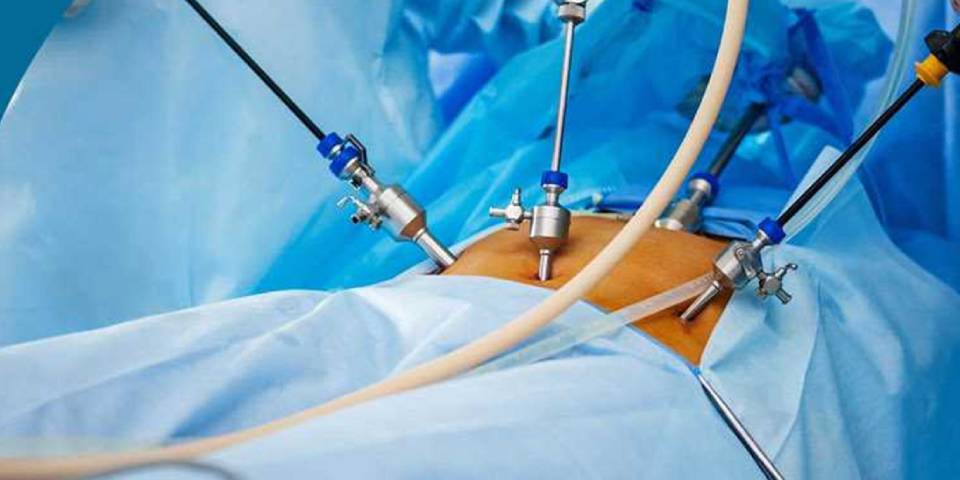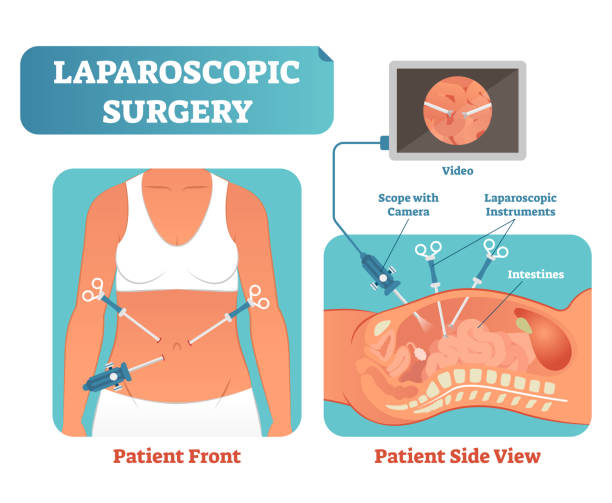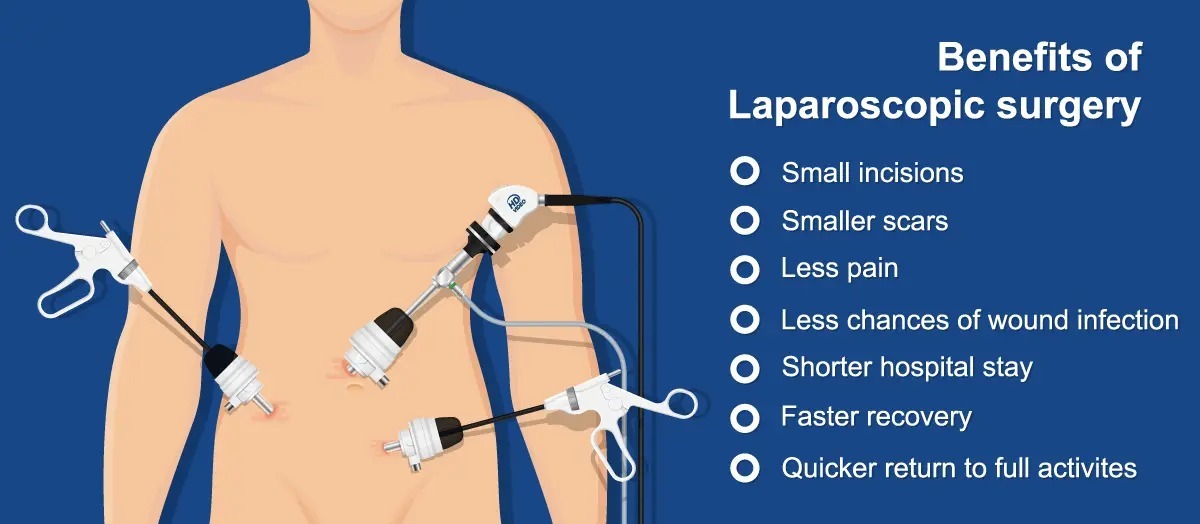
Best laparoscopic Surgeon in Bangalore
Dr. Bhushan Chittawadagi is one of the best laparoscopic surgeons in Bangalore with over 18 years of experience in the field of basic and advanced laparoscopic surgery. He completed his MBBS from Shri BM Patil Medical College, Vijaypur, Karnataka, and Completed his MS in General Surgery from Dr. Vaishampayan Memorial Government Medical College, Solapur, Maharashtra. Later he completed his sub-specialization in Surgical Gastroenterology at Gem Hospital and Research Centre, Coimbatore, Tamil Nadu.
His experience in the field of laparoscopic GI and HPB surgery makes him the best laparoscopic surgeon in Bangalore, Karnataka. He is trained and an expert in providing high-quality treatment and laparoscopic surgery. Currently, he is working as a consultant Advanced Laparoscopic, Gastro, and GI Cancer Surgeon at HOSMAT Hospital, Kalyan Nagar, Bangalore, and offers the cheapest laparoscopic surgery cost in Bangalore.
In addition to his clinical expertise, Dr. Bhushan is academically strong with 15 publications in leading PUBMED-indexed national and international journals and has received 7 national/international awards for his academic contributions. He is currently working as Consultant Advanced Laparoscopic, Gastro, and GI Cancer Surgeon at HOSMAT Hospital, Kalyan Nagar, Bangalore, and Consultant GI, HPB, and Liver Transplant at Sparsh Hospital, Bangalore.
What is Laparoscopic Surgery?

Laparoscopic surgery, According to Dr. Bhushan Chittawadagi, there is a minimally invasive surgical technique that involves making small incisions and using a laparoscope to access the internal organs. This technique offers many advantages over traditional open surgery, including faster recovery time, less scarring, and less pain and discomfort. As the best laparoscopic surgeon in Bangalore, Dr. Bhushan Chittawadagi has extensive experience in laparoscopic procedures related to the gastrointestinal system, gynecological problems, and urological conditions.
Why is laparoscopic surgery done?
Laparoscopy is a minimally invasive surgical procedure that involves making small incisions in the abdomen to insert a laparoscope (a thin, flexible tube with a camera) and other surgical tools to perform various surgical procedures. According to Dr. Bhushan Chittawadagi, laparoscopy is performed for a variety of reasons, including:
- Diagnosis: Laparoscopy can be used to diagnose various conditions, such as endometriosis, ovarian cysts, and certain cancers, by allowing doctors to visually examine the internal organs.
- Treatment: Laparoscopy is used to treat various conditions, such as gallbladder disease, hernias, and appendicitis. Laparoscopic surgery is less invasive than traditional open surgery, resulting in less pain, faster recovery times, and smaller scars.
- Biopsy: Laparoscopy can be used to perform biopsies on internal organs, such as the liver, pancreas, and lymph nodes, to help diagnose certain conditions.
- Infertility: Laparoscopy can be used to investigate and treat infertility issues, such as endometriosis, pelvic adhesions, and blocked fallopian tubes.
- Cancer: Laparoscopy can be used to stage certain types of cancer and to remove cancerous tumors, such as those found in the colon, stomach, or ovaries.
Overall, laparoscopy is a versatile and useful surgical technique that can be used for both diagnostic and therapeutic purposes, and it offers many benefits compared to traditional open surgery.
Types of Laparoscopic Surgery
Dr.Bhushan Chittawadagi is an excellent laparoscopic surgeon in Bangalore and he is expertise in following laparoscopic surgery.
- Colorectal surgery: Hemicolectomies, anterior resection & APR, rectopexy, diverticulitis surgery, and stoma creation & revision
- Upper GI surgery: Fundoplication, diaphragmatic hernia repair, TVGJ, duodenal perforation repair, and cancer surgery for the stomach and esophagus.
- HPB surgery: Pancreatic-Biliary (HPB) surgery – Subtotal chole, cystogastrostomy, and hydatid cyst surgery.
- Bariatric surgery: Sleeve gastrectomy, Roux-en-Y gastric bypass, and Mini gastric bypass.
- Laparoscopic hernia repair: Being a hernia specialist in Bangalore, Dr. Bhushan also specializes in TEP – Total extraperitoneal pre-peritoneal repair and TAPP – Transabdominal pre-peritoneal repair.
What are the Benefits of Laparoscopic Surgery?

Working this way has several advantages compared with traditional surgery. Because it involves less cutting:
- You have smaller scars.
- You get out of the hospital quicker.
- You’ll feel less pain while the scars heal, and they heal quicker.
- You get back to your normal activities sooner.
- You may have less internal scarring.
Here’s an example. With conventional methods, you might spend a week or more in the hospital for intestinal surgery, and your total healing might take 4 to 8 weeks. If you have laparoscopic surgery, you might stay only 2 nights in the hospital and recover in 2 or 3 weeks. And a shorter hospital stay generally costs less.
Treatment of laparoscopic surgery:
Dr. Bhushan Chittawadagi is a renowned surgeon who specializes in laparoscopic surgery, which is a minimally invasive surgical technique that involves small incisions made in the abdomen to insert a camera and surgical instruments.
The following are some of the treatments that Dr. Bhushan Chittawadagi may perform using laparoscopic surgery:
- Gallbladder surgery: Laparoscopic surgery is commonly used to remove the gallbladder, which is a small organ that helps with digestion. This surgery is often done to treat gallstones or other gallbladder problems.
- Hernia repair: Laparoscopic surgery can be used to repair inguinal, umbilical, and other types of hernias. This technique involves placing a small mesh patch over the weak spot in the abdominal wall to prevent the hernia from recurring.
- Appendectomy: Laparoscopic surgery can be used to remove the appendix, which is a small organ that is part of the digestive system. This surgery is often done to treat appendicitis, which is a condition where the appendix becomes inflamed.
- Endometriosis surgery: Laparoscopic surgery can be used to diagnose and treat endometriosis, which is a condition where tissue similar to the lining of the uterus grows outside of the uterus. This surgery involves removing the abnormal tissue and may also involve removing the uterus or ovaries.
- Bariatric surgery: Laparoscopic surgery can be used to perform weight loss surgery, such as a gastric bypass or sleeve gastrectomy. These surgeries involve reducing the size of the stomach to help patients lose weight and improve their health.
Laparoscopic surgery offers many benefits compared to traditional open surgery, including smaller incisions, less pain, faster recovery time, and fewer complications. However, not all patients are candidates for laparoscopic surgery, and Dr. Bhushan Chittawadagi will evaluate each patient to determine the best treatment plan.
Procedure of laparoscopic surgery:
Dr. Bhushan Chittawadagi is a laparoscopic surgeon who specializes in minimally invasive surgeries. The procedure of laparoscopic surgery, also known as keyhole surgery, involves making small incisions in the abdomen and using a laparoscope to view the inside of the body.
Here is the general procedure of laparoscopic surgery according to Dr. Bhushan Chittawadagi:
- Anesthesia: Before the surgery, the patient is given general anesthesia to ensure they are unconscious and do not feel any pain during the procedure.
- Incision: The surgeon makes small incisions in the abdomen, usually around 0.5-1.5cm in size.
- Insertion of Laparoscope: A laparoscope, which is a long, thin tube with a light and camera attached, is inserted through one of the incisions. This allows the surgeon to view the inside of the abdomen on a monitor.
- Insertion of Surgical Instruments: Other small instruments are inserted through the remaining incisions to perform the surgery. These instruments may include forceps, scissors, or a surgical stapler.
- Surgery: The surgeon uses the instruments to perform the necessary surgical procedures, such as removing an organ, repairing a hernia, or removing a tumor.
- Closure of Incisions: Once the surgery is complete, the instruments are removed, and the incisions are closed with stitches or surgical glue.
- Recovery: The patient is moved to a recovery room where they are monitored until they wake up from anesthesia. They may experience some pain, swelling, or discomfort after the surgery, but this can usually be managed with pain medication.
Laparoscopic surgery is a minimally invasive procedure that typically results in less pain, scarring, and shorter recovery times compared to traditional open surgery. It is commonly used for a variety of procedures, including gallbladder removal, hernia repair, and appendectomy.
Laparoscopic Surgery Cost in Bangalore
Dr. Bhushan Chittawadgi is one of the best laparoscopic surgery doctors in Bangalore. Laparoscopy surgery in Bangalore is a very affordable procedure that takes very little time to operate and does not extend the doctor’s stay too much. Laparoscopy cost in Bangalore is Rs. Starting from 50K to 90K It only depends on the type of surgery, condition of the patient, skill of the surgeon, location, and cost of the hospital.
Why Dr. Bhushan Chittawadgi for Best Laparoscopic surgeon in Bangalore ?
Dr. Bhushan Chittawadagi is a highly experienced laparoscopic surgeon in Bangalore with over 18 years of experience in the field. He is known for his expertise in performing complex laparoscopic surgeries such as laparoscopic hysterectomy, myomectomy, and endometriosis surgeries. Dr. Bhushan Chittawadagi has trained extensively in laparoscopic surgery in India and abroad and has gained a reputation for delivering excellent patient outcomes.
Some of the reasons why Dr. Bhushan Chittawadagi may be a good choice for laparoscopic surgery in Bangalore include:
- Expertise: Dr. Bhushan Chittawadagi is an expert in laparoscopic surgery with years of experience in performing complex surgeries. He has undergone extensive training in India and abroad and is well-versed in the latest techniques and technologies in laparoscopic surgery.
- High success rate: Dr. Bhushan Chittawadagi has a high success rate in performing laparoscopic surgeries, with many satisfied patients who have reported positive outcomes.
- Patient-centric approach: Dr. Bhushan Chittawadagi is known for his patient-centric approach, taking the time to understand his patient’s needs and concerns and developing personalized treatment plans that are tailored to each patient’s specific needs.
- State-of-the-art facilities: Dr. Bhushan Chittawadagi clinic is equipped with state-of-the-art facilities and the latest technology to ensure that patients receive the best possible care.
Overall, if you are in need of laparoscopic surgery in Bangalore, Dr. Bhushan Chittawadagi may be a good choice for his expertise, success rate, patient-centric approach, and state-of-the-art facilities. However, it is always important to do your own research and consult with a qualified medical professional before making any decisions about your healthcare.
Book an Appointment
Dr. Bhushan Chittawadgi is a consultant and an Advanced Laparoscopic, Gastro, and GI Cancer Surgeon practicing at Hosmat Hospital, Bangalore, Karnataka. He has more than 18 years of experience in the field of Laparoscopic GI & HPB Surgery making him one of the best laparoscopic surgeons in Bangalore, Karnataka. He is specialized in Laparoscopic hernia surgery, Gall bladder stone, Obesity, liver and pancreas diseases, GI surgery, Piles, and Breast & Thyroid diseases.
If you are looking for the best laparoscopic surgeon call us at +91 89407 70990 or book an online appointment here.
Frequently Asked Question (FAQ):
Which is the best laparoscopic surgeon in Bangalore?
Dr. Bhushan Chittawadagi is one of the best laparoscopic surgeons in Bangalore having more than 18 years of experience in the field of basic & advanced laparoscopic surgery. His experience in the field of Laparoscopic GI & HPB Surgery makes him one of the best laparoscopic surgeons in Bengaluru, Karnataka
Is laparoscopic surgery a major surgery?
Although laparoscopic surgery is minimally invasive and requires small incisions it is not minor surgery. Laparoscopic surgery is major surgery with the potential for major complications including bleeding and injury to the visceral organs, GI tract, and bladder.
How long does it take to recover from laparoscopic surgery?
Laparoscopic surgeries require small incisions and are minimally invasive so the recovery time is typically less than surgeries performed through traditional methods. Patients can go home after doctors have checked for any side effects and the effects of the anesthesia have worn off.
What are the most common laparoscopic surgeries?
Some common laparoscopic surgeries are Appendectomy, Cholecystectomy, Gall bladder removal, Splenectomy and shunt surgeries (spleen removal), Anti-reflux surgery, Hernia repair & Ectopic pregnancy.
What is the fastest way to recover after undergoing laparoscopic surgery?
After patients are discharged from the hospital, they undergo recovery at home. Keeping a few things in mind will ensure fast and proper recovery after laparoscopy
Is laparoscopic surgery painful?
Laparoscopic surgeries are performed under the effect of anaesthesia so patients don’t feel pain during the surgery. After the surgery is done, there may be mild to moderate pain and thumping in the incision areas. Within a few days, the pain goes away. Moreover, doctors also prescribe painkillers to ease the pain after surgery.
How long does a laparoscopy take?
Laparoscopy used to diagnose a condition can take anywhere between 30 and 60 minutes. Laparoscopic surgery used to treat conditions can take longer depending on the type of surgery.
How long will my stomach be swollen after laparoscopy?
After laparoscopy is done, patients might feel swelling in the stomach area for a few weeks. Mostly, swelling and bloating will clear by 12 weeks, however, in some rare cases, it can remain up to 12 months after surgery.
